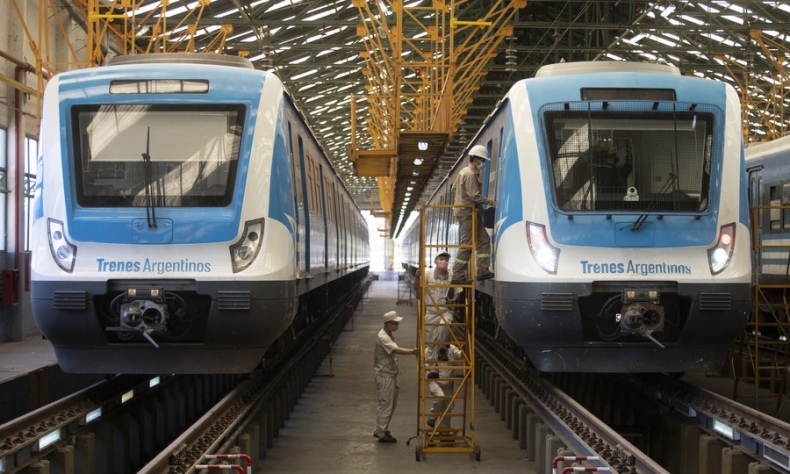Milei’s China Visit: Why the Change of Tone?

While China’s friendly stance toward Argentina remains unchanged, developing sound relations with China has become a consensus that transcends political divisions within Argentina.
Argentine President Javier Milei, known for his past critical remarks about China, appears to be planning a visit to the country. According to newspaper La Nación and other Argentine media, Milei revealed in an interview that he intends to visit China in January next year, calling it a “very interesting trading partner.” A senior government official was quoted as saying that preparations are underway to ensure the trip goes smoothly.
This is an interesting U-turn given Milei previously stated he would “never trade with China,” resulting in diplomatic tensions in his first months in office. After assuming office last December, he further announced that Argentina would not join the BRICS bloc, reversing the previous government’s efforts toward membership. Originally consisting of Brazil, Russia, India, China and South Africa, BRICS is now a 10-member group of emerging economies.
Milei’s recent comments signal a sharp shift in stance. In the interview, Milei also specifically thanked China for renewing a currency swap agreement with Argentina in June, saying it would help Argentina to meet its financial obligations to the International Monetary Fund.
Internal pressures may be what is primarily driving Milei’s change of heart toward China. After taking office, his government implemented a form of “shock therapy” to tackle inflation and stimulate the Argentine economy through radical reforms, including privatizing state-owned enterprises, liberalizing exports, and loosening price controls. However, these drastic measures seriously impacted the underprivileged and working class, resulting in widespread social unrest. Within the first 10 months of Milei’s presidency, Argentina already saw three mass protests. According to Argentina’s national statistics agency on September 26, the poverty rate in Argentina in the first half of this year surged to 52.9 percent, with extreme poverty reaching 18.1 percent—the highest since 2003. The poverty rate was 11 percentage points higher than before Milei took office.
Another factor behind Milei’s pivot toward China is probably the cold reception he received from the United States. Dubbed the “Argentine Trump,” Milei had focused on strengthening ties with the U.S. during his election campaign, advocating the dollarization of Argentina’s economy and the abolition of the central bank. After his election, he soon visited the U.S. but was snubbed by the Joe Biden administration, which neither granted him a meeting nor offered Argentina additional economic support.

Facing economic challenges at home and lacking U.S. assistance, Milei has been forced to reconsider his country’s relationship with China. Given the current global landscape, he likely recognizes which countries can lend Argentina a much-needed helping hand.
The Argentine president’s announcement of his upcoming visit to China has attracted attention from the international community. Some political analysts speculate that the trip is either an attempt to seek peace or a pursuit of easy money from China.
But in terms of economic and trade relations, the purpose of Milei’s visit may not be accurately described as “seeking.” China and Argentina are equal, mutually beneficial partners. China is Argentina’s second largest trading partner, following its neighbor Brazil, and serves as Argentina’s largest source of imports. In 2023, bilateral trade between China and Argentina reached $20 billion, highlighting the importance of maintaining stable economic, trade and investment ties for the benefit of both countries.
Milei’s shift in attitude toward China offers hope for continued improvement in relations between the two countries. While China’s friendly stance toward Argentina remains unchanged, developing sound relations with China has become a consensus that transcends political divisions within Argentina.
Nonetheless, important lessons should be drawn from recent challenges. For example, it is imperative to prioritize long-term stability in their relations and avoid creating unnecessary obstacles. Deepening political mutual trust and reinforcing the strategic and comprehensive nature of their partnership will make bilateral relations more resilient and dynamic—an outcome desired by both peoples and in line with their fundamental interests.
 Facebook
Facebook
 Twitter
Twitter
 Linkedin
Linkedin
 Google +
Google +










